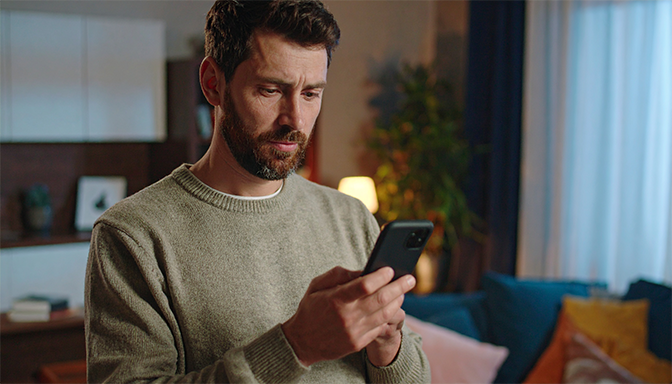7 Signs You’re in a Toxic Friendship (And How to Fix It)
7 Signs You’re in a Toxic Friendship (And How to Fix It)
That nagging feeling in your gut after hanging out with a certain friend isn’t just paranoia. Sometimes the people we care about most are also the ones draining our energy, undermining our confidence, or making us question our own reality. Toxic friendships are incredibly common, yet most people stay stuck in them for years because they’re hard to recognize when you’re in the middle of one.
Unlike romantic relationships, friendships don’t come with clear breakup protocols or obvious red flags that everyone talks about. You might find yourself making excuses for behavior you’d never tolerate from a romantic partner, simply because “that’s just how they are” or because you’ve been friends for so long. But here’s the truth: friendship should add joy, support, and positive energy to your life, not leave you feeling drained, anxious, or constantly walking on eggshells.
1. They Only Contact You When They Need Something

Picture this: your phone lights up with their name, and your first thought isn’t excitement but dread about what favor they’re about to ask. This friend has perfected the art of disappearing when life is good and magically reappearing when they need emotional support, money, connections, or someone to help them move. Research shows that one-sided relationships create significant stress and resentment over time.
What makes this particularly insidious is how they frame their requests. They’re not asking for help; they’re sharing their “crisis” and expecting you to jump in as the solution. When you’re not available or say no, suddenly you’re being “selfish” or “not a real friend.” They’ve trained you to feel guilty for having boundaries.
Pay attention to the pattern of communication. Do they text you regularly just to check in, share funny memes, or make plans? Or does every conversation eventually circle back to their problems, needs, or drama? Healthy friendships involve mutual interest in each other’s lives, not just one person using the other as an unpaid therapist or personal assistant.
Immediate Action Steps:
- Track communication patterns for two weeks to see the reality
- Practice saying “I can’t help with that right now” without elaborate explanations
- Stop being the first person to reach out and see what happens
- Set specific boundaries about when and how you’re available
- Ask them questions about your life and notice their level of interest
How to Address It
Start by creating some distance to gain perspective on the relationship. Stop being available every time they call with a crisis, and see how they respond when you need support. Real friends will adjust their behavior when you point out the imbalance, while toxic friends will often get angry or try to guilt you back into your old role.
If you decide the friendship is worth saving, have a direct conversation about wanting more balance in your relationship. Be specific about what that looks like and watch their actions, not just their words, moving forward.
2. You Feel Emotionally Drained After Spending Time Together

Healthy friendships should energize you, not leave you feeling like you need a three-day recovery period. If you consistently feel exhausted, anxious, or emotionally heavy after hanging out with someone, your body is telling you something important. This isn’t about having one bad day or going through a rough patch; it’s about a consistent pattern of feeling worse after interactions.
Toxic friends are emotional vampires. They suck up all the positive energy in the room with their constant negativity, drama, or need for attention. Every conversation becomes about their problems, their stress, or their latest crisis. When you try to share good news, they find ways to diminish it or redirect the conversation back to themselves.
The exhaustion comes from constantly managing their emotions while suppressing your own. You find yourself becoming their emotional regulator, always trying to cheer them up, talk them down from drama, or validate their feelings. Meanwhile, your own needs and emotions get pushed aside because there’s never space for them in the relationship.
Energy Drain Warning Signs:
- Needing alone time to “recover” after seeing them
- Feeling anxious or tense during conversations
- Constantly playing therapist or mediator role
- Walking on eggshells to avoid setting them off
- Feeling relief when they cancel plans
How to Address It
Pay attention to how you feel before, during, and after spending time with different friends. Notice the stark contrast between energizing friends and draining ones. Start limiting the time you spend with energy drainers and notice if shorter interactions feel more manageable.
Set emotional boundaries by refusing to get pulled into their drama or constant negativity. You can be supportive without becoming their personal emotional dumping ground.
3. They’re Consistently Unsupportive of Your Success

Real friends celebrate your wins like they’re their own. Toxic friends find subtle (and not-so-subtle) ways to minimize your accomplishments, compete with your successes, or make your good news somehow about them. This might look like backhanded compliments, immediate one-upping, or simply changing the subject when you share exciting news.
Watch how they respond when something good happens in your life. Do they seem genuinely happy and ask follow-up questions? Or do they quickly redirect the conversation to their own achievements, find ways to diminish your success, or seem uncomfortable with your happiness? Some toxic friends will even try to sabotage your opportunities because your success makes them feel insecure about their own lives.
This behavior often stems from their own insecurities and competitive nature, but that doesn’t make it acceptable. Friendship should involve mutual support and celebration, not competition and resentment. You should feel comfortable sharing good news without worrying about their reaction or how it might affect their mood.
Unsupportive Behavior Patterns:
- Backhanded compliments disguised as support
- Immediately talking about their own achievements when you share news
- Finding negatives in your positive situations
- Being “too busy” to celebrate your wins but available for their own events
- Making you feel guilty for being happy or successful
How to Address It
Test the waters by sharing smaller pieces of good news and observing their reactions. Notice whether they ask follow-up questions, remember details later, or seem genuinely interested in your happiness. Stop sharing your biggest wins with people who consistently respond poorly to your good news.
A direct conversation about wanting more support in the friendship can reveal whether they’re willing to change. Some people aren’t aware of their competitive tendencies and will adjust their behavior when called out on it.
4. They Violate Your Boundaries Repeatedly

Boundaries aren’t suggestions, they’re requirements for healthy relationships. Toxic friends treat your boundaries like obstacles to overcome rather than limits to respect. Whether it’s showing up unannounced, continuing conversations about topics you’ve said make you uncomfortable, or pressuring you to do things you’ve clearly said no to, they consistently push past your stated limits.
What makes this particularly damaging is how they frame their boundary violations. They’re not disrespecting you; they’re being “spontaneous” or “caring” or they “know you don’t really mean it.” They’ve learned to reframe their disrespectful behavior as positive traits, making you feel guilty for enforcing your own boundaries.
Healthy friends might accidentally cross a boundary once, but they apologize and adjust their behavior moving forward. Toxic friends will cross the same boundary repeatedly, argue with you about why the boundary is unnecessary, or make you feel bad for having limits in the first place.
Common Boundary Violations:
- Showing up unannounced despite your preference for plans
- Continuing to bring up topics you’ve asked them to avoid
- Pressuring you to change decisions you’ve already made
- Not respecting your time constraints or availability
- Sharing your private information with others
How to Address It
Be crystal clear about your boundaries and the consequences for violating them. Don’t hint or hope they’ll figure it out; state your limits directly and follow through with consequences when they’re crossed. Document patterns of boundary violations to see the full scope of the problem.
If they continue to violate boundaries after clear communication, consider whether this friendship is worth the constant stress and disrespect.
5. The Relationship Feels One-Sided

Healthy friendships involve reciprocity – both people initiating contact, making effort to maintain the relationship, and showing interest in each other’s lives. If you’re always the one reaching out, making plans, and driving the friendship forward, you’re probably in a one-sided relationship that’s more convenient than meaningful for the other person.
Stop being the one who always texts first and see what happens. If weeks go by without hearing from them, that tells you something important about how much they value the relationship. Real friends don’t just respond to your efforts; they make efforts of their own because they miss you and want to stay connected.
One-sided friendships are exhausting because you’re constantly wondering if you matter to them while doing all the emotional labor to keep the relationship alive. You might find yourself making excuses for their lack of effort or convincing yourself that they’re just bad at staying in touch, but consistent patterns reveal true priorities.
One-Sided Relationship Signs:
- You always initiate contact and make plans
- They’re slow to respond or often don’t respond at all
- Conversations focus mainly on their life and interests
- They rarely ask about your life or remember details you’ve shared
- You feel like you’re bothering them when you reach out
How to Address It
Pull back your effort to match theirs and see if the friendship naturally fades or if they step up their involvement. This isn’t about playing games; it’s about discovering the true nature of your relationship. Some friendships are meant to be more casual, and that’s okay if you adjust your expectations accordingly.
If you want to maintain a closer friendship, have an honest conversation about wanting more reciprocity and mutual effort in staying connected.
6. They’re Unreliable When You Need Support

Everyone goes through difficult times, and true friends show up during those moments – not necessarily with solutions, but with presence, listening, and emotional support. Toxic friends have a remarkable ability to disappear or become “too busy” precisely when you need them most, while expecting you to be available for all their crises.
This might look like canceling plans when you’re going through a breakup, being unavailable when you’re dealing with family problems, or minimizing your struggles because they’re “not that bad” compared to their own. They’ve trained you to be their emotional support system without offering the same in return.
Pay attention to their availability during your difficult times versus their expectations of your availability during theirs. Healthy friendships involve mutual support during both good times and challenges. You shouldn’t have to beg for the same support you freely give to others.
Support Imbalance Indicators:
- They’re always “too busy” when you need help
- Your problems get minimized or dismissed
- They change the subject when you’re struggling
- Plans get canceled when you’re going through difficult times
- They expect immediate responses to their crises but are slow to respond to yours
How to Address It
Stop being immediately available for their every crisis and see how they respond to reduced access to your support. Notice whether they show more interest in reciprocating when their unlimited access to your emotional labor is restricted.
Be direct about needing more support in the friendship and specific about what that looks like. Some people are naturally self-focused and need explicit requests to recognize others’ needs.
7. You Feel Like You Can’t Be Yourself Around Them

Authentic friendships allow you to be completely yourself without fear of judgment, criticism, or rejection. If you find yourself constantly monitoring your words, hiding parts of your personality, or feeling like you need to perform a certain version of yourself to maintain their approval, the friendship is stifling your authentic self.
Toxic friends often have very specific expectations about who you should be and how you should behave. They might criticize your choices, mock your interests, or make you feel stupid for your opinions. Over time, you start self-censoring to avoid their negative reactions, which slowly erodes your sense of self.
You might notice that you act differently around this friend compared to others, or that you feel relief when you can finally “be yourself” after spending time with them. This constant performance is exhausting and prevents real intimacy from developing in the relationship.
Authenticity Red Flags:
- Constantly watching what you say around them
- Feeling judged for your interests, opinions, or choices
- Hiding parts of your life to avoid their criticism
- Feeling like you need to perform a certain personality
- Relief when interactions end so you can “be yourself” again
How to Address It
Start expressing your authentic opinions and interests in small ways and notice their reactions. Do they show curiosity and acceptance, or do they criticize and judge? Real friends might not share all your interests, but they won’t make you feel bad for having them.
Consider whether this person accepts and appreciates who you really are, or if they only like the version of you that conforms to their expectations.
Conclusion: Choosing Healthy Relationships
Recognizing toxic friendship patterns is the first step toward building healthier relationships. Not every toxic friendship needs to end immediately – some can be improved with better boundaries and direct communication. However, if someone consistently shows disrespect for your boundaries, lacks empathy for your experiences, or drains your energy without offering support in return, it might be time to consider whether this relationship serves your well-being.
Your Friendship Evaluation Action Plan
- Assess your current friendships using these seven signs
- Practice setting and enforcing boundaries with challenging friends
- Reduce time and energy invested in consistently draining relationships
- Focus on nurturing friendships that are reciprocal and supportive
- Remember that it’s okay to outgrow friendships that no longer serve you
Remember: You deserve friendships that add value, joy, and support to your life. Don’t stay stuck in toxic patterns out of guilt, history, or fear of being alone. Quality relationships are always better than quantity when it comes to friendship.
Affiliate Disclaimer: Some links in this article may be affiliate links where a purchase would provide us with a commission. We only recommend products and services we truly believe can help you on your personal growth journey.
Advice Disclaimer: This advice is for informational and entertainment purposes only and not a substitute for professional counseling, therapy, financial, legal, or medical advice. You are responsible for your own decisions and actions. For serious issues, please consult qualified professionals.



